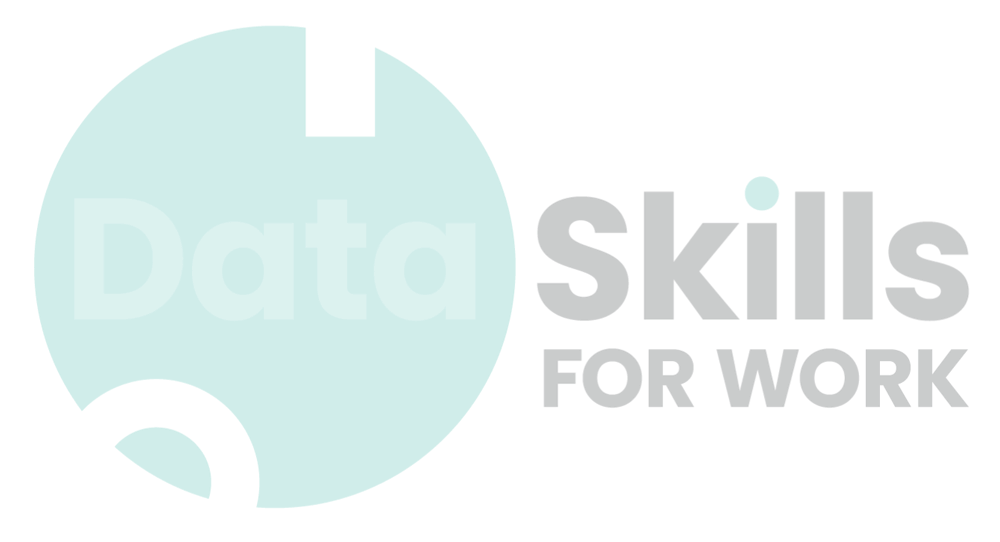Research supports development of upskilling pathways for employees
In spring 2020, EKOS were commissioned by The Data Lab to develop a framework for data skills that will be used to support the work of the Data Skills for Work programme, the upskilling and retraining strand of the Data Driven Innovation Skills Gateway initiative in the Edinburgh and South East Scotland City Region.
Data skills are increasingly in need and are being progressively integrated into many job roles, but employers still highlight data skill shortages. Current data education and skills provision is limited and fragmented and the skills system is complex, with no clear pathways for learners wanting to acquire data skills and identify routes into data jobs. Typical paths into data-related roles rely on the traditional Higher Education route, which is not delivering either the number or diversity of workers required to fill the growing regional and national demand for workers with the relevant skill sets to undertake both data worker and data professional roles.
EKOS were commissioned to conduct user research with organisations in the Edinburgh and South East Scotland City Region that could benefit from data upskilling; map research findings to produce a data skills framework; and identify and engage with training providers who can contribute to the development of data skills pathways.
Research programme
Interviews …
… with 49 City Region employers across a range of sectors, focused on establishing their data skills needs
Consultation …
… with education and training providers and other stakeholders, and a review of the data skills and education landscape in the City Region
Review …
… of existing literature on data skills needs and approaches to (re)training and upskilling, particularly in response to automation
A framework for Data Skills
The Data Skills Journey framework sets out the key data skills and competencies required at four levels of data literacy
People involved in the production of data, with an understanding of how data impacts their own lives and others
People whose primary job role is not in data but who use basic analysis tools to answer questions about data and use this to support decision making for their organisation
People with a job role in data with the specialist skills required to provide large scale data infrastructure and analysis, to help organisations make data-informed decisions
People with a strategic, leadership role in an organisation, with the ability to: assess how an organisation can make best of its data, know what skills are needed, and to develop and implement a data strategy
The Data Skills Framework aims to help employers, individuals and training providers to define the key skills and capabilities at each level of data literacy, supporting them to recognise existing data skills and areas where they could improve, plan for the future and make informed investment decisions, and develop learning to support this.
What employers told us
Even among companies where a good level of data literacy was reported, nearly all felt there was scope for improvement.
Employers emphasised the importance of foundational data skills at all levels, including among leadership in an organisation.
Key skills requirements at each literacy level were identified as:
Data Citizen: Data literacy, ethics & governance
Data Worker: Analytics, visualisation, ethics & governance, data literacy
Data Professional: AI/machine learning, analytics, ethics & governance
63% said that there is an opportunity in their organisation to upskill employees vulnerable to automation into data roles
The largest opportunity for upskilling/retraining is at Citizen and Worker level
56% reported a preference for blended learning and 31% for online only learning
Key findings
Demand for data skills from employers is still emerging, in tandem with a relatively new and growing education offer in the City Region.
Work with future Data Leaders is particularly important to increase awareness of the opportunity and drive data adoption, particularly in sectors where this has been slower.
Although employers pointed to a range of skills providers they are currently accessing, the landscape is felt to be confusing. A framework can tie this together and show clear learning pathways.
There is also a strong case for working to embed data literacy in wider workforce training programmes, such as those run by industry networks.
The Citizen/Worker/Professional/Leader levels are well understood and should be adopted.
Request a copy of the report
About the Data Skills for Work Programme
The Data Skills for Work programme is led by The Data Lab, Scotland’s Innovation Centre for Data and AI. The programme is part of the wider Data Driven Innovation (DDI) Skills Gateway, which is led by the University of Edinburgh and funded (via the Edinburgh & South East Scotland City Region Deal) by the Scottish Government.












